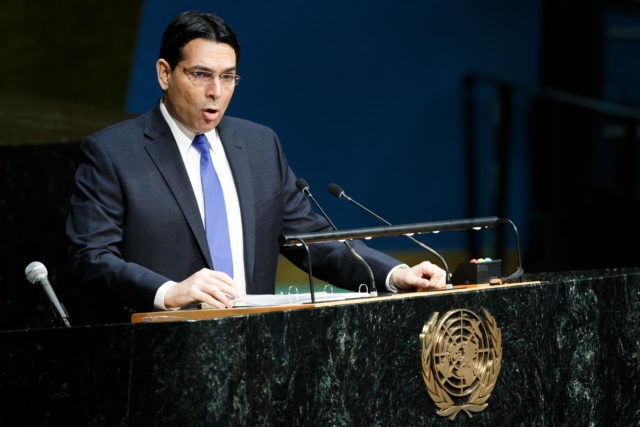
In an unprecedented move, the United Nations elected Israel as head of the UN’s Legal Committee on Monday, despite heavy criticism from multiple Arab nations. Israel earned support from 109 member nations during the secret ballot vote, in what will become one of the Jewish State’s most visible roles in an international organization.
One of the UN’s six permanent committees, the Legal Council election was hailed as an “historic achievement for the State of Israel” by Israel’s Ambassador to the UN, Danny Danon, who will assume the chairmanship. The committee deals with issues of international law, such as the status of additional protocols to the Geneva Convention. Additionally, counter-terrorism coordination efforts are on the committee’s schedule. The body will continue working on the Comprehensive Convention on International Terror, a proposed global treaty which seeks to curtail terrorism by establishing a clear definition of “terrorism” and by denying funds and arms to terrorist organizations. The chairman’s position is largely a procedural one, however, it also gives Israel a much more prominent role in routine proceedings at the UN and greater influence over the committee’s agenda.
Ambassador Danon said he believes that Israel is well equipped to lead the Legal Committee, noting in a statement that the country is, “a world leader in international law and fighting terror.” Israeli diplomats hope the nomination also serves as a staging ground for other leadership positions at the UN, potentially even a seat on the UN Security Council. Israel was not eligible to join the Security Council until 2000, and the process of requesting a seat began in 2005. However, countries line up for seats well ahead, and 2018 marks the first time an open seat will be available for Israeli consideration.
Not every nation shared support for Israel’s new role. Countries from the Non-Aligned Movement (NAM) and Organization of Islamic Cooperation (OIC) worked to discredit the process and coordinated a campaign to block Israel’s nomination. Although chairmanships of the committee is usually confirmed without a vote, that precedent was challenged by Yemen, acting as a representative of the UN Arab Group. Criticism has also come from people such as Arab League Secretary General Nabil Elaraby and the Palestinian representative to the UN.
Despite Israel’s new responsibilities and proactive role on the Legal Committee, the Jewish State still faces institutionalized discrimination and prejudice at the UN. In 2015, the UN Human Rights Council passed 6 resolutions condemning Israel and none against any other country, including Syria. Meanwhile, the UN General Assembly passed 20 resolutions critical of Israel, with one each against one each against Syria, Iran and North Korea.
While Monday’s nomination highlights Israel’s diplomatic potential in the community of nations, many roadblocks to greater respect still remain.





